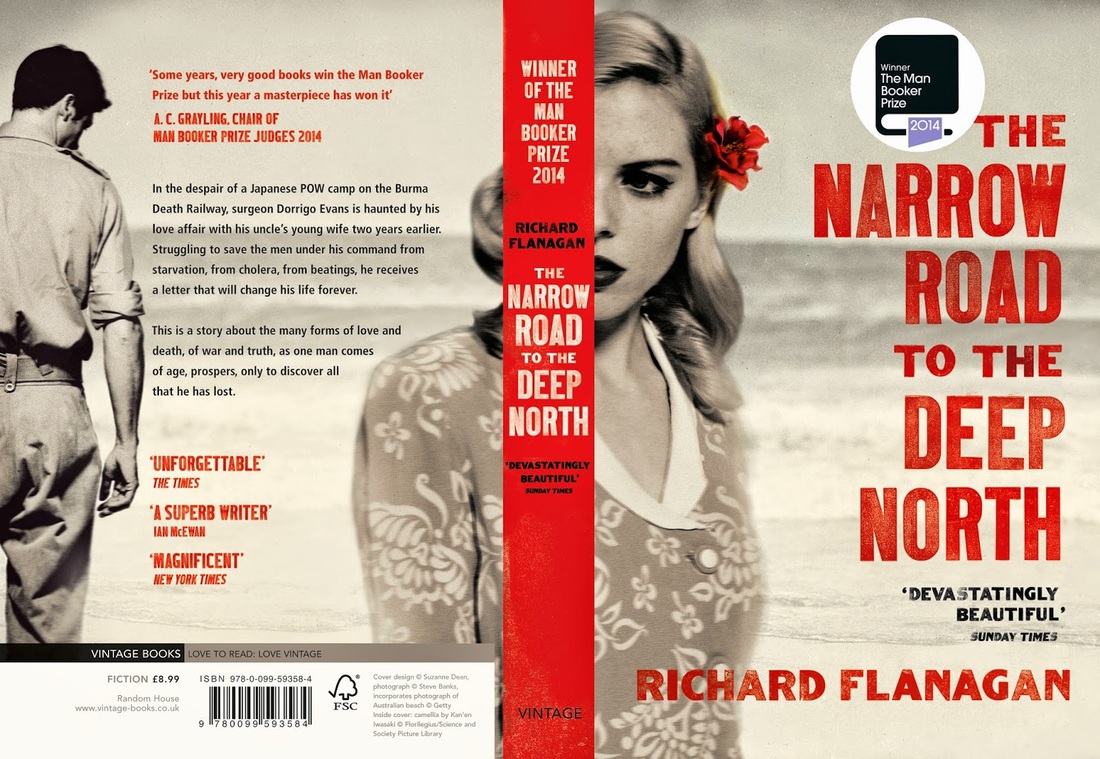|
Richard Flanagan wrote ‘The Narrow Road to the Deep North’ as a tribute to his father, one of a quarter of a million POW slave labourers in World War II, forced to work on what is now known as the 'Death Railway' or ‘The Line’ from Siam (now Thailand) to Burma that the Japanese began to construct in 1943.
A quick Google search tells that more than 180,000—possibly many more—Asian civilian labourers (Romusha) and 60,000 POWs worked on the railway. Of these, estimates of Romusha deaths are little more than guesses, but probably about 90,000 died. 12,621 Allied POWs died during the construction. The dead POWs included 6,904 British personnel, 2,802 Australians, 2,782 Dutch and 133 Americans. The numbers are more than died at Hiroshima (70 years this August), pointed out Flanagan in an interview with The Guardian, and a place where there were more ‘corpses than there were words in my novel,’ he added. Flanagan’s father, a man in his nineties, passed away on the same day his son sent the final draft to his publisher. The author has dedicated ‘The Narrow Road to the Deep North’ to prisoner san byaku san jū go (335); his father’s prison number. It won the Man Booker Prize 2014. The novel is a love story and a war story, and from what I’ve read about Flanagan, it seems that for a war story to succeed, a love story must accompany it. And I happen to agree particularly in this case where certain passages are so graphic in their depiction of the atrocities, that without our hope for a happy ending somehow, for any one of the characters, this would only be one horror reel after another, after another as the reader is bombarded with accounts of what went on in Siam in 1943 and what the POWs had to go through day in and day out where one is driven to the conclusion that to be ‘lucky’ meant to be dead and where even the jungle monkeys were envied for their freedom. All I could think of as I read through this novel and well after I was done with the book, that we, as humans, never learn not to go to war. Dorrigo Evans, the 'Big Fella', the novel’s main character, seems to share my thoughts after one the novel’s most traumatic, and gruesome event takes place and he realises for an instant that he thinks he has grasped ‘the truth of a terrifying world in which one could not escape horror, in which violence was eternal, the great and only verity, greater than the civilisations it created, greater than any god man worshipped, for it was the only true god. It was as if man existed only to transmit violence to ensure its domain is eternal’. Forever after for those men, ‘there were for them only two sorts of men: the men who were on the Line, and the rest of humanity, who were not’. The book borrows its title from 17th century haiku poet Matsuo Bashō's famous haibun known in English as 'The Narrow Road to the Deep North'. The novel also encompasses the post war lives of Japanese and Korean prison guards as well as the Australian Prisoners of War. Richard Flanagan’s novel is a beautifully written masterpiece, already a winner of one of the highest accolades in literature. In his book, Flanagan writes of Dorrigo Evans’ view of a good book as one that ‘leaves you wanting to re-read’ it, yet a great book ‘compels you to re-read your soul’. The latter applies to the book at hand. I do warn that it is not an easy read and yet one that will stay with readers long after its last word. The Back Cover: In the despair of a Japanese POW camp on the Burma Death Railway, surgeon Dorrigo Evans is haunted by his love affair with his uncle's young wife two years earlier. Struggling to save the men under his command from starvation, from cholera, from beatings, he receives a letter that will change his life forever. This is a story about the many forms of love and death, of war and truth, as one man comes of age, prospers, only to discover all that he has lost. About the author: Born in Tasmania in 1961, Richard Flanagan is one of Australia's leading novelists. His novels, Death of a River Guide, The Sound of One Hand Clapping, Gould's Book of Fish (winner of the Commonwealth Writers' Prize), The Unknown Terrorist and Wanting have received numerous honours and been published in 26 countries. Learn more about him HERE.
0 Comments
Your comment will be posted after it is approved.
Leave a Reply. |
Archives
March 2021
|





 RSS Feed
RSS Feed
